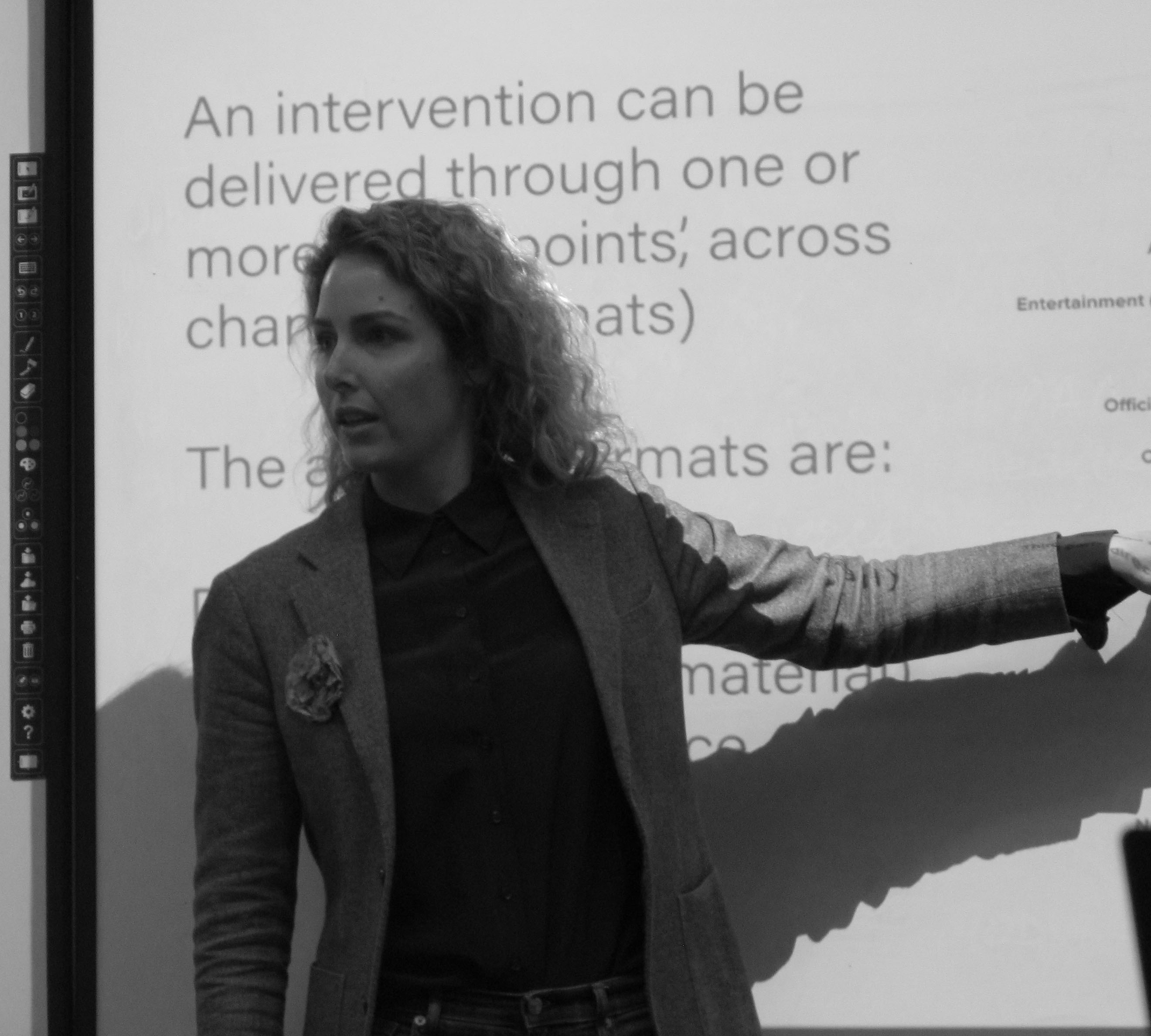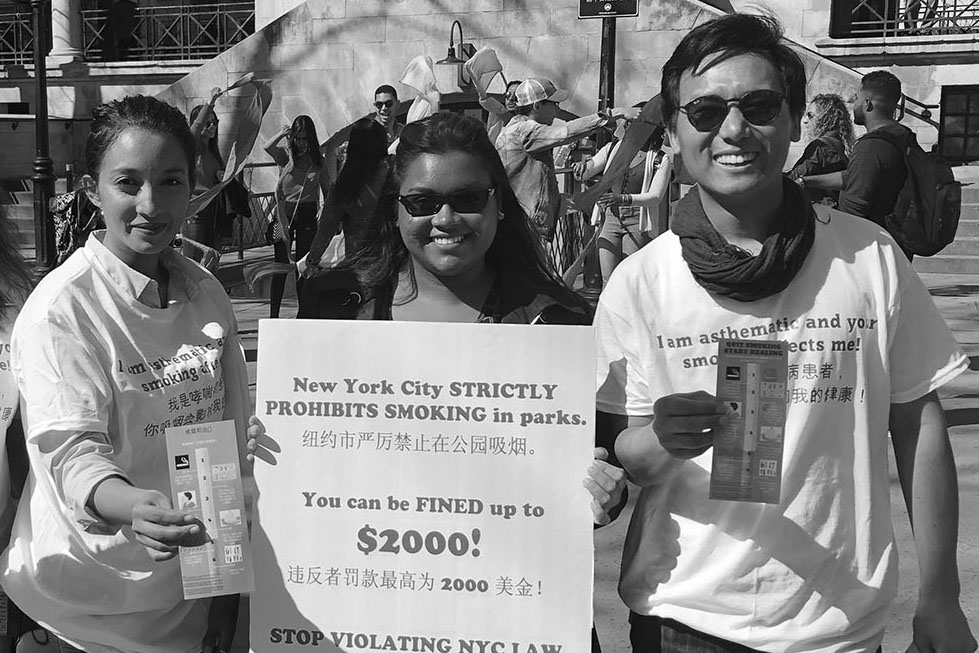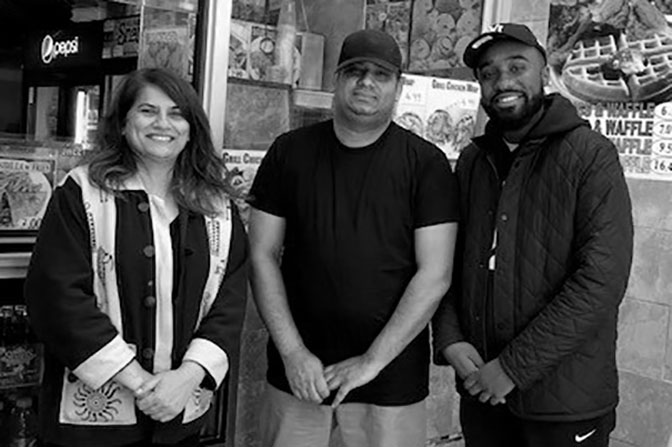MPA Program at CCNY
Second-year students in CCNY’s Master’s in Public Administration (MPA) program spent much of their final semester outside of the classroom engaging local communities and officials on public health issues affecting New York City neighborhoods.
The Lower East Side, Crown Heights, Elmhurst, Mott Haven, and Central Harlem are among the neighborhoods where three-person teams of students interviewed local stakeholders and tested policy interventions for problems such as asthma, obesity, and access to prenatal care.
The semester-long assignment, known as a capstone project, encouraged students to learn hands-on and apply the practical skills acquired in the MPA program – among them project management, communications, and statistics – to real issues affecting the city.
Students received training in Behavior-Centered Design (BCD), an evidence-based approach to policy that includes an investigation phase, in which students collect and analyze data, and a validation phase, in which students conduct experiments to test policy interventions.

The BCD framework “enables the students to access objective qualitative insight from the people most impacted by policy,” said Michelle Gilmore, founder of the service consulting firm Neoteny Service Design and Train, who taught the BCD workshops and guided the students throughout the semester.
BCD teaches the students the critical skill of “thinking outside of themselves, accessing an objective state of mind where they don’t get attached to ideas and are not blinded by their personal subjectivity,” Gilmore explained. “We need to empower the new generation of changemakers who demand evidence-led decision-making and are able to prove or disprove various interventions.”
For MPA students, who are headed for public service careers, the BCD approach provides valuable exposure to the process of designing policy. “This method quickly turns theoretical knowledge into lived experience, and that’s a very powerful transition,” said Gilmore.
2018 is the first year that the program has implemented BCD. Previously, each capstone team was matched with a single organization or government agency. A supervisor from the host organization proposed a project, and the students worked as consultants with guidance from a faculty advisor.
“The organization-based approach was a valuable opportunity to exercise key skills in the real world, but it did not expose students to the breadth of stakeholders and potential policy interventions in which social problems are embedded,” said MPA Acting Director Natalia Trujillo, who has led the shift toward the new BCD approach.
“The new approach is aimed at holistically addressing urban issues in their full complexity within community districts,” said Trujillo, “while giving students the opportunity to exercise changemaker skills, like creative thinking, problem-solving, and adaptive leadership.”
Students said they gained a deeper understanding of policy issues. “While trying to understand the issues in our district based on the available data, there was always a little doubt,” said Rosey Basant. “Speaking to the individuals who walk the streets everyday who deal with the congestion, pollution, and second hand smoke helped to put a human face behind the data.”
Others emphasized that the project took their skills to a new level. “This capstone tested my project management skills,” said Belkissa Doumbia. “We learned from industry experts who taught us to trust the process and grow in the face of adversity.”

Eden Mulate said the project enhanced her interviewing skills. “This experience taught me how to be a good listener when interviewing and to prompt people to go deeper instead of having surface-level conversations,” she said.
Several students mentioned the challenges of teamwork, especially when team members have multiple jobs and personal commitments.
To help students succeed in teams, the MPA program provided a professional Myers-Briggs personality assessment and a strengths-finder survey and encouraged the students to explore how they could complement each other.
“One of our strengths as a team was that each of us brought diverse skills and perspectives to the effort to solve a problem,” said Phuntsok Tashi. “We found that in order to be effective, one of us needed to be the leader who assigns tasks, organizes, and provides direction.”

Students also drew upon their knowledge of their native languages – Cantonese, Spanish, and Urdu, among others – to more effectively engage local stakeholders.
“Being a native Urdu speaker helped me connect with the owner of the restaurant where we ended up doing our policy experiment,” said Sumaira Khan, whose team focused on obesity in Crown Heights. “The next day, I could switch to English and communicate with nonprofit managers in a professional setting,” she continued.
Khan also said the capstone project fit well with her career aspirations. “I am developing plans to launch an initiative to serve South Asian domestic workers, and this capstone has provided me with the necessary tools to do the groundwork,” she said.
Capstone projects, which are an essential component of the MPA program, provide hands-on learning experience that helps students advance toward a broad variety of careers, from the government to nonprofits to social enterprises.